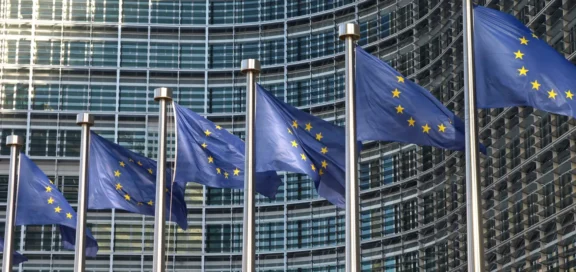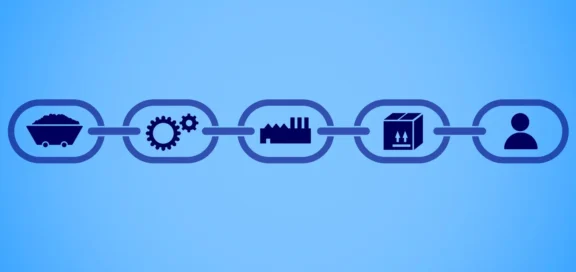Contract negotiation and drafting
Relationships with manufacturers, suppliers, service providers and other partners in the supply chain are generally based on contractual agreements.
Whether it’s a shortage of raw materials, a shortage of skilled workers, an increase in the price of individual goods, strict environmental regulations, changing legislation, unforeseen national or international crises – the causes of disruptions in the supply chain are diverse and require careful consideration during contract negotiations. This applies regardless of the purely factual measures that every company takes as part of optimized supply chain management in order to be resilient when problems in the supply chain occur.
Particularly in the case of complex and multi-tier supply chains, the key maxim is to draft the contractual provisions as clearly and comprehensively as possible and not to rely solely on the statutory provisions. This includes, in particular, provisions on
- Service and product descriptions
- Process and quality requirements
- Any obligations to cooperate
- Delivery times
- Dealing with defects
- Dealing with delay
- Pricing
- Payment modalities
- Obligations arising from customs and export regulations (for cross-border contracts)
- Liability
- Contractual penalties
- Applicable law – for matters that are not purely national
- Dispute resolution
Flexibility is often required: when negotiating the terms of the envisaged cooperation, each party must weigh up the risk that they themselves or one of their upstream suppliers may not be able to meet a contractual obligation required of them. This must be determined based on the individual circumstances and on an industry- and company-specific basis. In particular, a supplier will, for example, always have to scrutinize compliance with a fixed delivery date requested by the buyer (especially if the supplier is not the manufacturer) to determine whether or not it can guarantee compliance with the planned delivery date by taking its own precautions (e.g. delivery from stock). If not, the supplier will have to insist on longer delivery periods, binding forecasts, flexible delivery dates, etc. during negotiations in order to avoid being exposed to financial risks (resulting from withdrawal, damages, contractual penalties).
A buyer who commits to annual minimum purchase quantities (in the long term) must consider during the contract negotiations whether and under what conditions he would like to be released from this commitment if problems arise in the supply chain. Aspects that may have an influence on pricing without this being the responsibility of one of the parties should also be openly addressed and regulated in the contract.
The less influence a (supplying) contractual partner has with respect to supplying products or services at a certain time and in a certain volume (and at a certain price), the greater is the importance of contractual provisions that provide for specific mechanisms in such cases (e.g. information obligations if it becomes apparent that a delay may occur due to late delivery by the upstream supplier; the right to make partial deliveries; mandatory grace periods; price increases, grace periods; price increases that are to be partially mitigated, etc.).
Preparing for an emergency
In the period prior to the conclusion of (international) supply contracts, one of the two constellations is often encountered, sometimes both at the same time:
- Each party is firmly convinced that it has reached full and comprehensive agreement with the other on all points
- Each party trusts the word of the other and assumes that any problems that arise can be solved quickly and pragmatically.
In both cases, legal advice is often only reluctantly sought by the contracting parties before the actual signing (e.g. because there is an obligation to do so in the company), but in any case with the expectation of summarizing the supposedly agreed points clearly in a short document or “just checking” the wording of provisions that have already been mutually agreed.
This initially understandable approach has a significant catch and leads to considerable disadvantages: typically, the signed contract is only taken out of the drawer (or electronic filing) into which it was put immediately after signing because the parties are no longer in agreement and hope that the contract will support their respective positions, if necessary in a legal dispute.
A dispute may result from one party accusing the other of breach of contract and wanting to derive certain rights from it, or from one party no longer wanting to be held to the (undisputed) obligations. Various other scenarios are also conceivable. In such cases, there is no longer any confidence that an amicable solution can be found pragmatically.
In order to achieve such a pragmatic solution through negotiation (and, in the event of failure, in court), a carefully drafted contract in which certain situations have been anticipated and regulated that could lead to disruptions in the supply chain and thus in the contractual relationship and to one party not being able to fulfill its contractual obligations without further ado helps.
Liability: almost everything can be agreed upon
The principle of contractual freedom also makes it possible, within what is legally permissible, to make detailed provisions on what should apply in the event of breaches of contract resulting from disruptions in the supply chain (e.g. at the upstream supplier), which in turn lead to damage to the contractual partner. Clear provisions on what type of damages are to be compensated (contractual penalties yes/no?), whether and if so for what type of infringements and/or damages there should be a limitation, what obligations to mitigate damages apply and much more help to avoid a legal dispute between the parties or, in the event of a dispute, to be able to prove where one’s own liability ends or how far the liability of the other party to the contract extends.
Product liability is a special case: responsibility for the safety and quality of products extends along the entire supply chain. If products are defective, both manufacturers and retailers can be held liable for any resulting (personal) injury. This not only leads to financial claims, but also to reputational damage under certain circumstances. In view of the fact that third-party product liability claims can neither be limited nor ruled out, the careful examination of suppliers and their quality controls is of crucial importance, particularly in this context, in order to minimize the risk of product liability claims.
Force majeure
Force majeure clauses are particularly useful in long-term supply contracts with an international dimension in order to regulate unforeseen events that may prevent or significantly impede the fulfillment of the contract. In times of crisis and/or in relation to countries that are considered crisis regions, a detailed and well-formulated force majeure clause can help to avoid uncertainties within the supply chain and protect the interests of both parties. The following should be taken into account:
- Definition: a clear definition of force majeure (which events are included?) should be included in the contract to avoid disputes as to whether or not a party (typically the supplier) is released from an obligation;
- Consequences: the force majeure clause should specify the legal consequences of such an event, namely the temporary suspension of obligations or the possibility of terminating the contract if performance remains impossible for an indefinite period;
- Obligation to notify: the obligation to notify the contractual partner immediately of the occurrence of a force majeure event serves to ensure that both parties can react quickly and find alternative solutions;
- Duration of suspension: the clause should specify a maximum duration for which the obligations can be suspended before the contract can potentially be terminated.
Accompanying measures
A proactive approach to contract management, compliance, quality control and ethical conduct is crucial to minimize legal risks. Regardless of the contractual structure, it makes sense to invest in training and processes to ensure that all players in the supply chain understand and comply with legal requirements. This is the only way to avoid legal difficulties and ensure a sustainable, smoothly functioning supply chain.
Disruption of the supply chain in international contracts
In international supply chains, i.e. in contractual relationships in which goods are either sourced from another country or sold to another country – or both – the different legal systems of the countries involved must be taken into account. This can raise questions about the applicable law and the competent jurisdiction. Especially in this international context, rules on applicable law and the jurisdiction of courts are of utmost importance.
The constant challenge that customs and export regulations pose for internationally operating companies must also be actively addressed: incorrect customs tariff numbers, inaccurate certificates of origin or non-compliance with export regulations can lead to considerable legal problems, not to mention fines and delays in the supply chain. Compliance programs should therefore be reviewed regularly and all employees involved should be informed about the applicable regulations through training and information events.
Strict labor laws apply in many countries, which are also important in the supply chain. Violations of labor regulations, such as the exploitation of workers or non-compliance with occupational health and safety measures, can have legal consequences. Particular attention should therefore be paid to compliance with applicable labor laws and ethical standards.
With the increasing focus on sustainability and environmental protection, there is growing pressure on companies to make their supply chains environmentally friendly, especially as violating environmental protection regulations not only has legal consequences, but can also damage the company’s image. From the customer’s point of view, it is essential to provide evidence of environmentally compliant work and to promote sustainable practices, particularly when drawing up international supply contracts.
Disruptions in the supply chain are complex in nature and require careful consideration of how to proceed when problems occur that are not necessarily caused by the respective contractual partner, but have their origin in a previous stage of the supply chain. Companies should be aware of the risks and are well advised to
- Seek legal advice at an early stage – even at the negotiation stage;
- Utilize leeway in contract design by dealing openly with identified problems;
- Take into account existing dependencies when drafting contracts;
- Establish accompanying elements such as compliance management, training, information and monitoring of suppliers;
- Be aware of the regulations of other legal systems in international contractual relationships and to insist on proof of compliance with labor and environmental protection regulations.
- Good contract design is essential for minimizing damage in the event of supply chain disruptions
- Problems in the supply chain must be anticipated and addressed when negotiating the contract
- In international supply contracts, additional aspects require special regulations and measures









